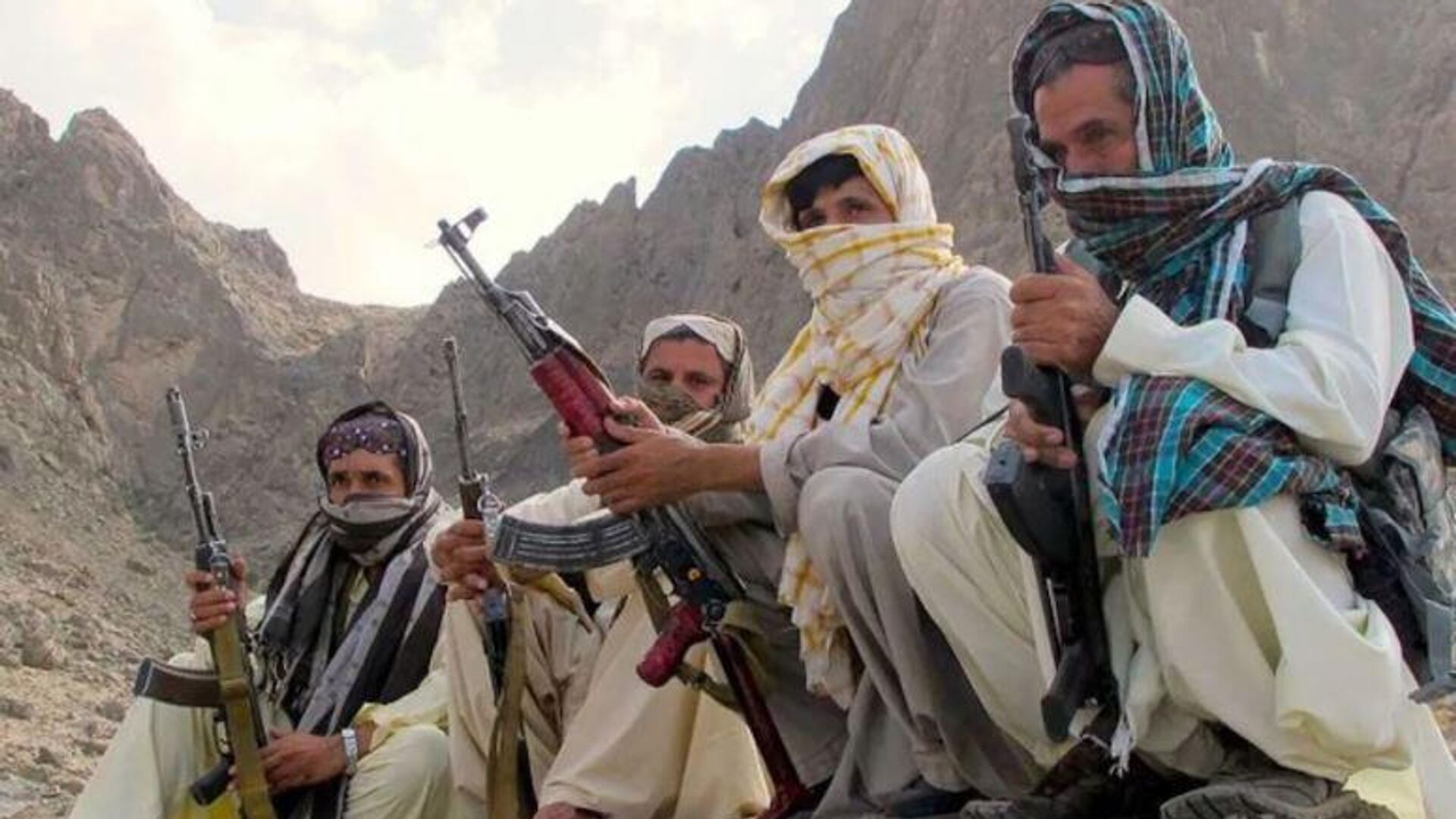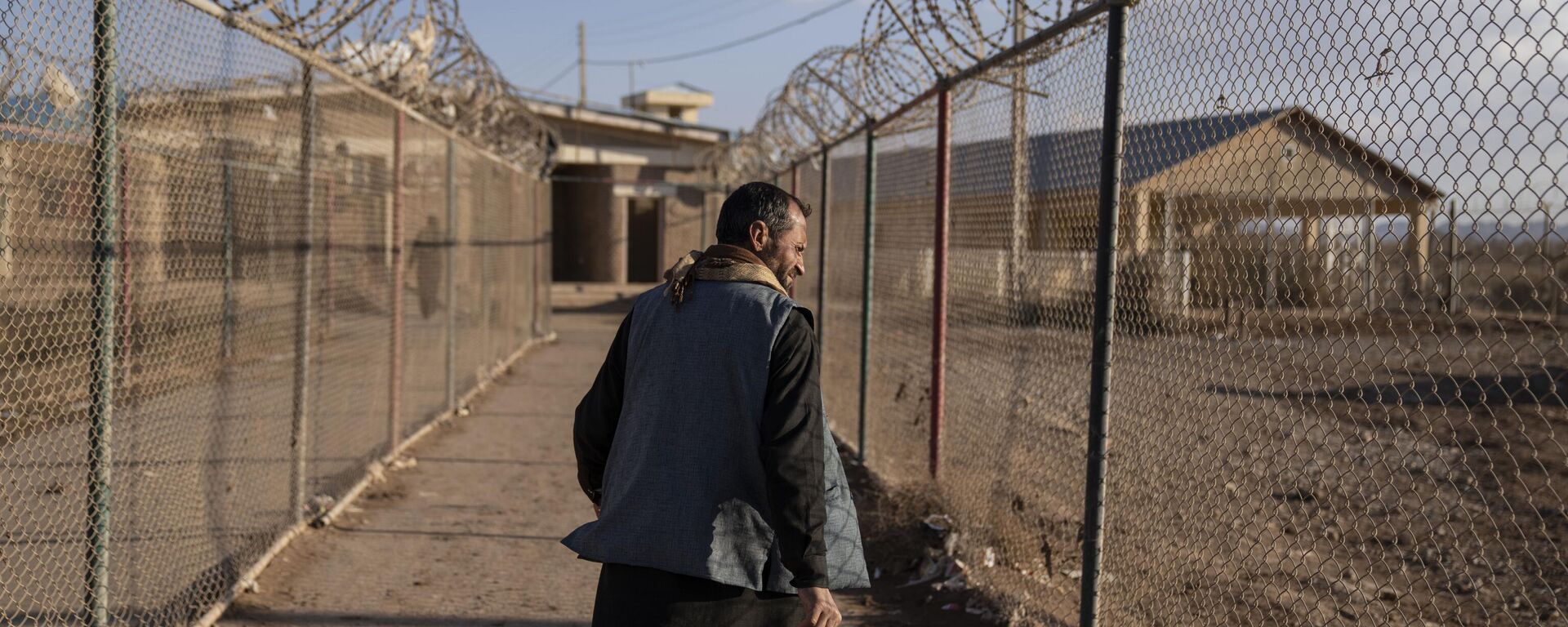https://sputniknews.in/20240828/baloch-liberation-army-gravest-threat-to-pakistans-integrity-8069015.html
Baloch Liberation Army: Gravest Threat to Pakistan's Integrity
Baloch Liberation Army: Gravest Threat to Pakistan's Integrity
Sputnik India
The BLA poses a serious threat to Pakistan, far bigger than another proscribed militant group Tehreek-e-Taliban Pakistan (TTP), strategic affairs pundits have said.
2024-08-28T16:19+0530
2024-08-28T16:19+0530
2024-08-28T17:53+0530
sputnik opinion
pakistan
balochistan
india
tehreek-e-taliban pakistan (ttp)
taliban
afghanistan
kabul
islamabad
terrorism
https://cdn1.img.sputniknews.in/img/07e8/08/1c/8070382_0:24:775:460_1920x0_80_0_0_a05f75d488a87fc4502c707fda439f66.jpg
The Baloch Liberation Army (BLA*) poses a serious threat to Pakistan, far bigger than another proscribed militant group Tehreek-e-Taliban Pakistan (TTP**), strategic affairs pundits have said.According to Naad-e-Ali Sulehria, a South Asia Fellow at global political and security think tank – PoliTact, – BLA is a formidable challenger to the Pakistani security forces considering the organisation has continuously waged an insurgency in the region for many decades.He pointed out that on the contrary, TTP has changed its erstwhile approach and only targets security forces.The purpose of TTP, the analyst reckoned, is religiously motivated Jihad, not ethnically separatism and this is the reason that TTP has a much more national approach than the BLA.Meanwhile, the Balochistan challenge is undoubtedly a grave threat to Pakistan, Dr Priyanka Singh, an Afghanistan-Pakistan researcher at India's premier defence think tank, Manohar Parrikar Institute for Defence Studies and Analyses (MP-IDSA) stressed in a conversation with Sputnik India.The coordinated attacks have occurred at a crucial juncture when the Pakistani state has launched yet another counter-terrorism operation – Azm-e-Istehkam, she emphasised.The international relations commentator believes that the latest attacks are a reprisal from the BLA, which has remained at the forefront/centre-stage of the Baloch resistance against the Pakistani state.Singh observed that there might have been more focus on the TTP in view of its augmented activities against Pakistan, especially since the time Islamabad's ties with Kabul have soured.The expert noted that the attacks have put the spotlight on the myriad threats Pakistan is facing from an array of terrorist outfits – all at the same time.She suggested that with the Taliban's** return to Afghanistan after the US exit, Pakistan was hoping its friends in Kabul would tighten the leash on the TTP. But for Pakistan, the outcomes from the Taliban's return have not been that rosy, she underlined.The geopolitical expert explained the Taliban's reticence in acting tough against the TTP has been one of the major causes of the Pakistan-Taliban rift.On the other hand, Sulehria mentioned that the current approach of Pakistan is focused on countering the effects rather than preventing the causes of terrorism.*a terrorist organisation banned in Pakistan**a terrorist organization banned in Russia and other states***under UN sanctions for extremism.
https://sputniknews.in/20240824/regional-implications-of-unrecognized-taliban-government-8058662.html
pakistan
balochistan
india
afghanistan
kabul
islamabad
Sputnik India
feedback.hindi@sputniknews.com
+74956456601
MIA „Rossiya Segodnya“
2024
Pawan Atri
https://cdn1.img.sputniknews.in/img/07e6/0c/13/139630_147:0:831:684_100x100_80_0_0_8fa2b25903e7787fe6a2698552c167df.png
Pawan Atri
https://cdn1.img.sputniknews.in/img/07e6/0c/13/139630_147:0:831:684_100x100_80_0_0_8fa2b25903e7787fe6a2698552c167df.png
News
en_IN
Sputnik India
feedback.hindi@sputniknews.com
+74956456601
MIA „Rossiya Segodnya“
Sputnik India
feedback.hindi@sputniknews.com
+74956456601
MIA „Rossiya Segodnya“
Pawan Atri
https://cdn1.img.sputniknews.in/img/07e6/0c/13/139630_147:0:831:684_100x100_80_0_0_8fa2b25903e7787fe6a2698552c167df.png
baloch liberation army, bla, bla coordinated attacks pakistan, bla attacks pakistan, bla attacks balochistan, baloch liberation army pakistan, azm-e-istehkam, azm-e-istehkam pakistan army, pakistan army counter-terrorism operation balochistan, balochistan protests, balochistan pakistan army operation, ttp pakistan threat, pakistan terrorism, pakistan militant outfit, pakistan terror attack, pakistan terrorist attack,
baloch liberation army, bla, bla coordinated attacks pakistan, bla attacks pakistan, bla attacks balochistan, baloch liberation army pakistan, azm-e-istehkam, azm-e-istehkam pakistan army, pakistan army counter-terrorism operation balochistan, balochistan protests, balochistan pakistan army operation, ttp pakistan threat, pakistan terrorism, pakistan militant outfit, pakistan terror attack, pakistan terrorist attack,
Baloch Liberation Army: Gravest Threat to Pakistan's Integrity
16:19 28.08.2024 (Updated: 17:53 28.08.2024) On Monday, a series of coordinated attacks claimed by the separatist Baloch Liberation Army (BLA) in the Pakistan province of Balochistan killed over 70 people, including 14 soldiers and 21 militants. Sputnik India analyses the threats the Islamic nation is facing from the radical outfit and other terrorist groups.
The Baloch Liberation Army (BLA*) poses a serious threat to Pakistan, far bigger than another proscribed militant group Tehreek-e-Taliban Pakistan (TTP**), strategic affairs pundits have said.
According to Naad-e-Ali Sulehria, a South Asia Fellow at global political and security think tank – PoliTact, – BLA is a formidable challenger to the Pakistani security forces considering the organisation has continuously waged an insurgency in the region for many decades.
"First, BLA is an ethnic separatist movement. They do not discriminate between Pakistani civilians and security forces when attacking. Plus, BLA poses a direct threat to billion-dollar CPEC projects," Sulehria told Sputnik India on Wednesday.
He pointed out that on the contrary, TTP has changed its erstwhile approach and only targets security forces.
The purpose of TTP, the analyst reckoned, is
religiously motivated Jihad, not ethnically separatism and
this is the reason that TTP has a much more national approach than the BLA.
Meanwhile, the Balochistan challenge is undoubtedly a grave threat to Pakistan, Dr Priyanka Singh, an Afghanistan-Pakistan researcher at India's premier defence think tank, Manohar Parrikar Institute for Defence Studies and Analyses (MP-IDSA) stressed in a conversation with Sputnik India.
"It is much older than what the TTP is, and more intense too. The struggle of the Balochi people has existed for decades and is rooted in the deep-seated angst of the people against Pakistan's unwarranted control and its military's alleged high-handedness," Singh said.
The coordinated attacks have occurred at a crucial juncture when the Pakistani state has launched yet another counter-terrorism operation – Azm-e-Istehkam, she emphasised.
The international relations commentator believes that the latest attacks
are a reprisal from the BLA, which has remained at the forefront/centre-stage of the
Baloch resistance against the Pakistani state.
Singh observed that there might have been more focus on the TTP in view of its augmented activities against Pakistan, especially since the time Islamabad's ties with Kabul have soured.
"However, the fact remains that the BLA is a perennial, more daunting enemy of Pakistan. Pakistan has left no stone unturned to violently crush the BLA but every time the group has come back stronger and hurt Pakistan's security interests to the hilt," she stressed.
The expert noted that the attacks have put the spotlight on the myriad threats Pakistan is facing from an array of terrorist outfits – all at the same time.
She suggested that with the Taliban's** return to Afghanistan after the US exit, Pakistan was hoping its friends in Kabul would tighten the leash on the TTP. But for Pakistan, the outcomes from the Taliban's return have
not been that rosy, she underlined.
The geopolitical expert explained the Taliban's reticence in acting tough against the TTP has been one of the major causes of the Pakistan-Taliban rift.
On the other hand, Sulehria mentioned that the current approach of Pakistan is focused on countering the effects rather than preventing the causes of terrorism.
"To prevent insurgency in Balochistan, their genuine grievances have to be addressed, this includes action against those involved in extrajudicial killings of innocent civilians and to prevent people from joining TTP, Pakistan has to promote more religious tolerance against extremism," he concluded.
*a terrorist organisation banned in Pakistan
**a terrorist organization banned in Russia and other states
***under UN sanctions for extremism.



